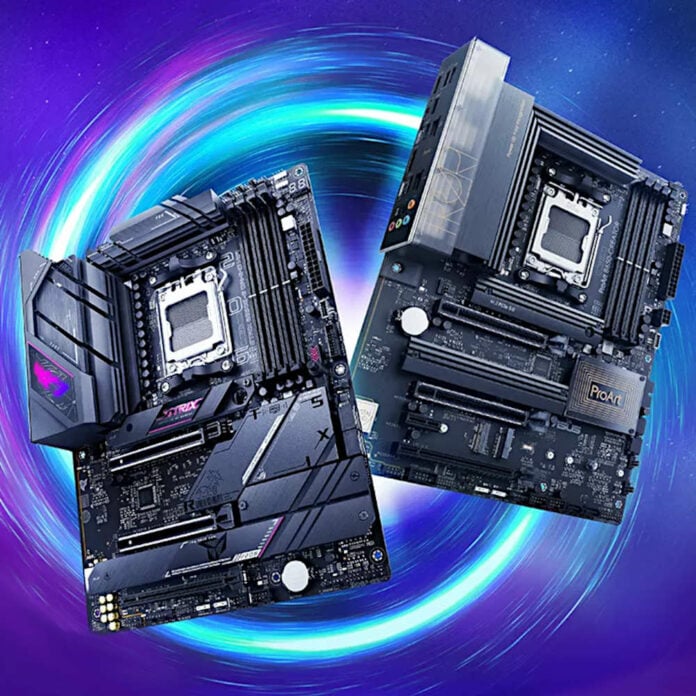Building a PC can prove an expensive venture these days as component prices continue to rise. Motherboards aren’t exempt from this trend and could sadly become more costly still. According to recent rumours, major Taiwanese manufacturers are preparing to raise board prices.
Reports of price rises from Asus, Gigabyte, and MSI are emerging on Board Channels. Translating the post in question, it appears that internal memos are circulating through each manufacturer informing staff of imminent cost increases for motherboards.
The reasons for this increase in price allegedly stem from exchange rate fluctuations as well as the rising cost of some components and materials. As a reminder, much of global trade is currently in flux in the wake of tariffs from the United States and elsewhere in the world.
There’s no word on when exactly motherboards will become more expensive, but it seems like it’s only a matter of time if these reports hold true. In which case, it might be wise to pick up that platform upgrade sooner rather than later regardless of what socket you’re after.
A quick study of pricing history for Asus ROG Strix Z890-F Gaming WiFi and MSI MAG X870 Tomahawk WiFi reveal that previously lower prices have recently returned to launch levels. Meanwhile, other motherboards like Gigabyte X870E Aorus Pro have remained static for their lifespan. Taking the rumours above at their word, I expect costs will only increase from here.
These price rises should have less of an effect on the AM5 platform, as there are plenty of models rocking prior generation chipsets (X670, B650, and A620) to fallback to. Unfortunately, LGA1851 isn’t so lucky with a single generation of chipsets to choose from (Z890, B860, and H810). In light of this, I imagine AMD will continue to enjoy far stronger sales than Intel when it comes to processors.
Bear in mind that these prices rises will only have a major effect on new motherboards. There are plenty of preowned boards out there deserving of love that could save you a proverbial fistful of cash. Just make to sure not to get caught out by any necessary BIOS updates, if you plan to pair a Ryzen 9000 Series processor with an 600 Series chipset for example.
If you need a recommendation, check out our selection of motherboard reviews spanning across current and prior generation chipsets and sockets. For everything else, make sure to give Club386 a follow on Google News to stay in the loop.


